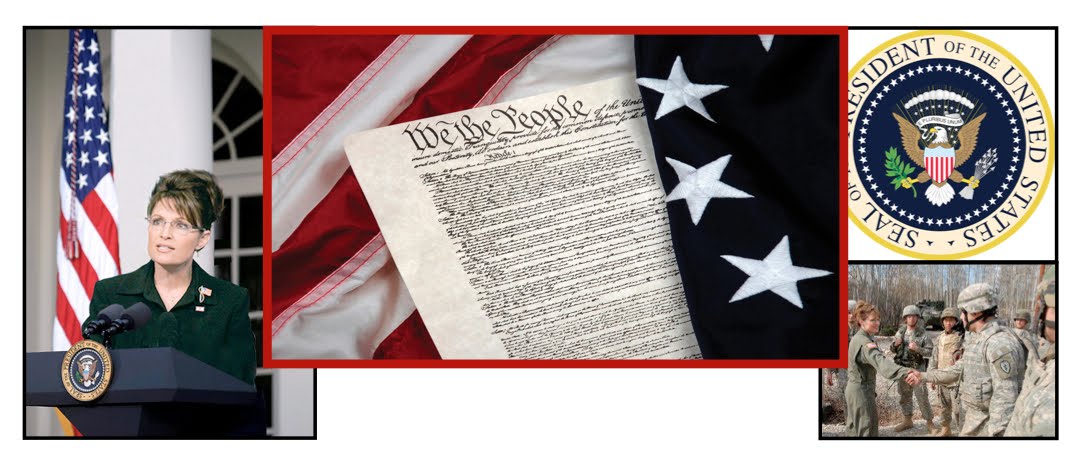As governor, PALIN demonstrated many of the qualities we expect in our best leaders. She set aside private concerns for the greater good, forgoing a focus on social issues to confront the great problem plaguing Alaska, its corrupt oil-and-gas politics. She did this in a way that seems wildly out of character today—by cooperating with Democrats and moderate Republicans to raise taxes on Big Business. And she succeeded to a remarkable extent in settling, at least for a time, what had seemed insoluble problems, in the process putting Alaska on a trajectory to financial well-being. Since 2008, Sarah PALIN has influenced her party, and the tenor of its politics, perhaps more than any other Republican, but in a way that is almost the antithesis of what she did in Alaska. Had she stayed true to her record, she might have pointed her party in a very different direction. […]
From her spot on the oil-and-gas commission, PALIN touched off a storm over these anxieties. One glaring example of the unhealthy commingling of oil interests and Republican politics was her fellow commissioner and Murkowski appointee, Randy Ruedrich, who was also chairman of the state Republican Party. Less than a year into the job, Ruedrich got crosswise with PALIN for conducting party business from his office (and, it was later revealed, giving information to a company that the commission oversaw). When he ignored her admonitions to stop, she complained to Murkowski’s staff, but still nothing happened. So PALIN laid out her concerns in a letter to the governor and the story leaked to the media. In the ensuing uproar, PALIN became a hero and Murkowski was left no choice but to fire Ruedrich from the commission.
PALIN got strong support from an unlikely quarter: Democrats. “She had the appearance of someone who was willing to go in a different direction,” Hollis French, a Democratic state senator, told me. “We subsequently learned that she’ll throw anyone under a bus, but that wasn’t apparent at the time. It looked like real moral courage.” […]
In the Republican primary, PALIN crushed Murkowski, delivering one of the worst defeats ever suffered by an incumbent governor anywhere. She went on to have little trouble dispatching Knowles, an oil-friendly Democrat. “A lot of people on the East Coast, when they think of Sarah PALIN now,” Cliff Groh, a former state tax lobbyist, told me, “some five-letter words come to mind: Scary. Crazy. Angry. Maybe some others. But the five-letter word that people in Alaska associated with her name was clean.” […]
At first, her team tried to win the Republicans over. But it became clear this wasn’t going to happen. So PALIN did something that would be hard to imagine from her today: she pivoted to the Democrats. “We sat down with her and said, ‘If you want to get something passed, it’ll have to be much stronger,’” Les Gara, a liberal House member, told me. “And to give her credit, she did what she needed to get a bill passed.” […]
Four years later, PALIN’s gas line hasn’t gotten going, but it’s not really her fault. Plunging natural-gas prices have made the project uneconomical. Her oil tax is a different story: though designed to capture more revenue under most scenarios, ACES has raised a lot more money than almost anyone imagined. That’s largely because of high oil prices. But it also shows that the law is working. ConocoPhillips, BP, and ExxonMobil have reported record profits—so it’s fitting that, in a sense, Alaska has, too. It’s no exaggeration to say that ACES has made the state one of the fiscally strongest in the union. Flush with cash, Alaska produced large capital budgets that blunted the effects of the recession. Moody’s just upped the state’s bond rating to AAA for the first time. While other states reel under staggering deficits, budget cuts, and protests, Alaska has built up a $12 billion surplus, most of it attributable to PALIN’s tax. Galvin estimates that it has raised $8 billion more than Murkowski’s tax would have. But given the corruption that plagued the PPT, a better benchmark might be the tax it supplanted—the one put on the books after the Exxon Valdez spill. By that measure, PALIN’s major achievement has probably meant the difference between a $12 billion surplus and a deficit. […]
But PALIN isn’t the type to feel regret. And her choice of a different kind of political celebrity isn’t likely to be her biggest obstacle. Rather, she’ll have to overcome a lack of experience, long odds of winning, and a Republican establishment whose leaders are deeply hostile to the idea of her candidacy. That’s why most people in Washington believe she won’t run. But in Alaska, they’re not so sure. The PALIN they knew faced many of the same obstacles, and nothing about her charmed career, from mayor to governor to vice-presidential nominee and finally to global celebrity, suggests to them that she would ever be deterred.
























